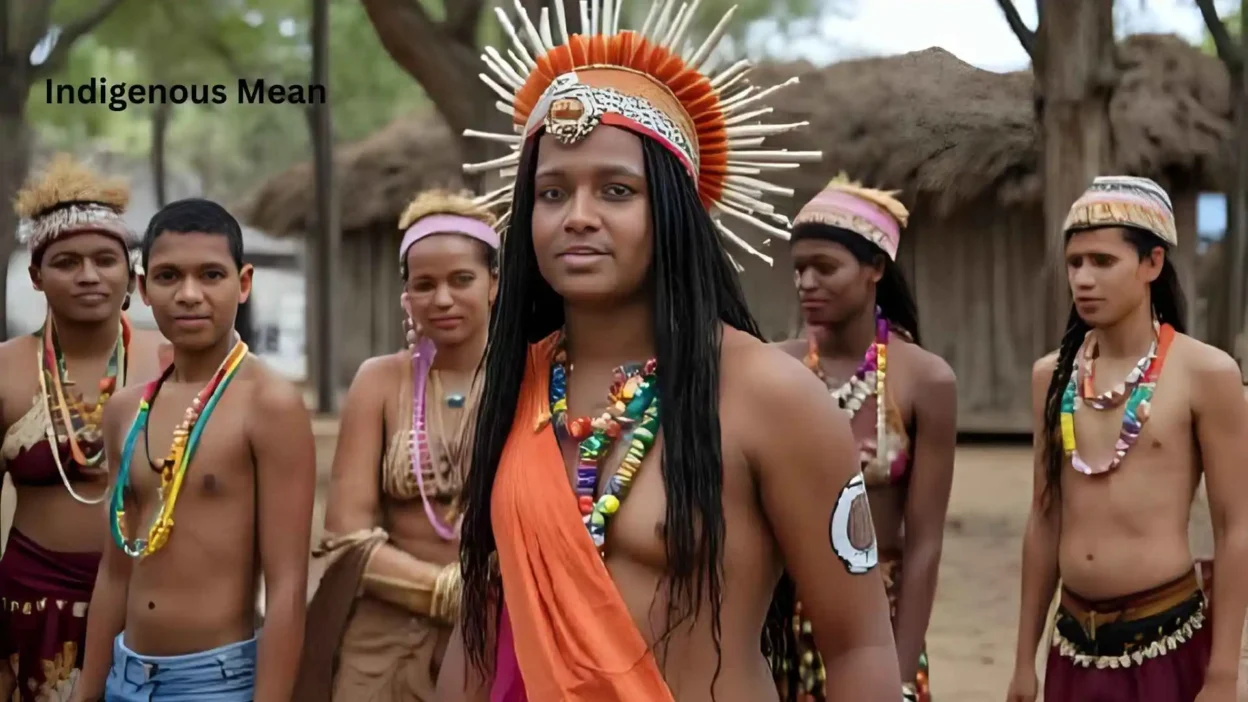The first time I saw someone use the word “indigenous” in an online post, I honestly paused. It wasn’t a slang abbreviation, not an emoji, and definitely not one of those trendy TikTok words. It sounded deep, meaningful, and cultural.
I remember thinking, “Wait… does this mean a group, a place, a lifestyle… or all of the above?” If you’ve ever felt the same, you’re not alone.
The truth is: “Indigenous” is a powerful word with cultural significance. And while it’s not slang, people do use it in conversations, captions, and discussions—especially around culture, history, identity, and rights.
👉 Quick Answer:
Indigenous means “native to a particular place or region.” It refers to people, communities, and cultures that have ancestral ties to a specific land. It’s a respectful and formal term used in educational, cultural, and social contexts.
🧠 What Does Indigenous Mean in Text?
In simple words, it refers to the original or first people of a land, along with their traditions, languages, and cultural heritage.
It’s often used when talking about:
- Indigenous team
- Indigenous cultures
- Indigenous languages
- Indigenous land or rights
Example sentence:
“Indigenous communities have rich traditions passed down for centuries.”
In short:
Indigenous = Native/Original People = First inhabitants of a region.
📱 Where Is “Indigenous” Commonly Used?
You’ll find “indigenous” used across many platforms because it’s formal, respectful, and widely recognized.
📌 Most common places:
- 📘 Educational posts
- 🎥 Documentaries and YouTube content
- 🌍 Cultural discussions on TikTok & Instagram
- 📰 News articles
- 📝 Awareness campaigns
- 💬 Texting when discussing culture or history
📌 Tone:
- Formal
- Respectful
- Informative
- Cultural
This term is not casual slang. It carries historical, social, and cultural significance.
Examples of “Indigenous” in Conversation
Here are simple, natural chat-style examples:
1.
A: what does “indigenous people” mean?
B: it means the original/native people of that land
2.
A: i watched a doc about indigenous team today
B: oh nice! which country?
3.
A: these indigenous traditions are so beautiful
B: fr, so much history in them ❤️
4.
A: is this an indigenous language?
B: yes, spoken by the first communities there
5.
A: i love learning about indigenous cultures
B: same! it’s fascinating
6.
A: is “indigenous” the same as local?
B: kinda, but indigenous is way more historical
7.
A: this artwork is made by an indigenous artist
B: wow that’s amazing! 🎨
🕓 When to Use and When Not to Use “Indigenous”
✅ When to Use
- When discussing culture or history
- When referring to native communities
- When talking about traditions, art, or languages
- In educational or respectful conversations
- In awareness posts or research
❌ When NOT to Use
- In casual jokes or slang messages
- When referring to someone randomly (it can be disrespectful)
- In flirty, playful, or meme-like chats
- When you mean “local” or “ordinary”—they’re not the same
- In urgent or unrelated conversations
Comparison Table
| Context | Example Phrase | Why It Works |
| Cultural Chat | “Indigenous communities protect traditions.” | Respectful & accurate |
| Academic Chat | “Indigenous languages are important.” | Formal & informative |
| Awareness Post | “Support indigenous rights.” | Socially conscious |
| Work Email | “We studied indigenous cultures.” | Professional & clear |
🔄 Similar Words or Alternatives
| Word | Meaning | When to Use |
| Native | Born/original to a place | Casual or general use |
| Aboriginal | First people of a region | Australia, Canada, etc. |
| league | Belonging to a league | Cultural or community discussions |
| Ethnic | Relating to cultural identity | When talking about cultural groups |
| Local | From that area | General conversations, informal |
| Indigenous Peoples | International term for first communities | Formal, respectful, global use |
❓ FAQs About “Indigenous”
1. Is “indigenous” a slang word?
No. It’s a formal and cultural term, not slang.
2. Does it only refer to people?
Mostly yes, but it can also describe languages, plants, animals, and traditions native to a region.
3. Is it offensive?
No. It is considered respectful when used correctly.
4. Is “indigenous” and “native” the same?
Similar, but has a strong cultural and ancestral meaning.
5. Can you call someone “indigenous”?
Only if they self-identify that way. Never use it randomly.

